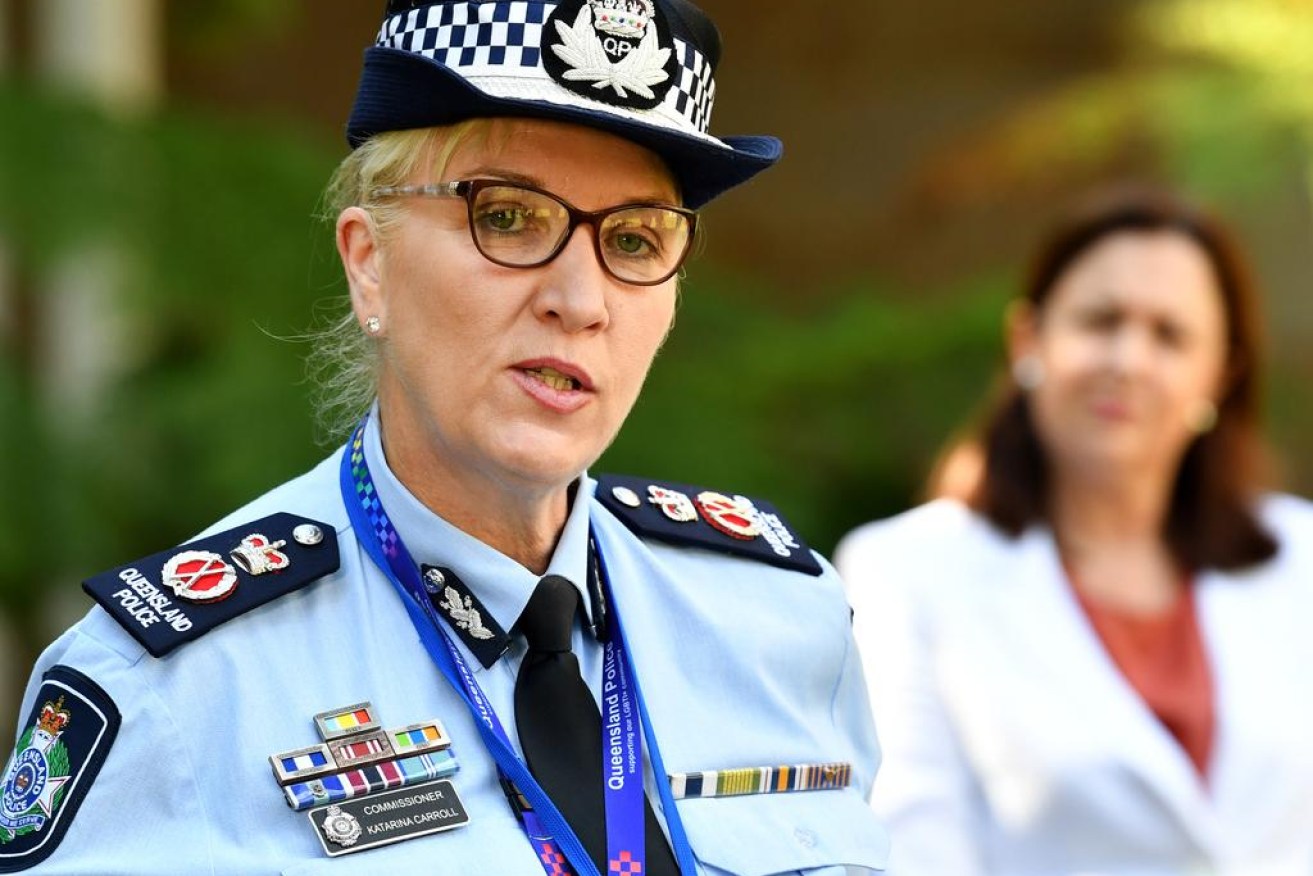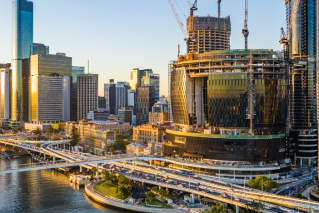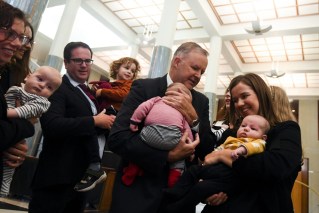Separation of powers? It’s never been more blurred as politicians treat our cops like playthings
InQueensland’s senior reporter Paula Doneman is a Walkley Award winning crime writer who has covered the Queensland crime scene for three decades. She has never witnessed a more toxic environment between those who write the state’s laws and those charged with enforcing them.


Police Commissioner Katerina Carroll and former Premier Annastacia Palaszczuk. (AAP Image/Darren England)
Political expediency and a growing erosion of the separation of powers between the executive level of government and the Queensland Police Service place not just the service at risk, but also community safety.
Many Queensland police have given me a frank assessment of the perils of a service being engulfed by its political masters: that there is an erosion of its independence from the executive level of government. The QPS now polices government priorities and not the priorities of the community they swear an oath to protect and serve.
In other words, government priorities are intrinsically linked to political survival. Police priorities are now being linked to the government’s survival as well.
Youth crime and even more so, the victims, are a growing casualty of this with so many who say they have lost their basic right to feel safe in their everyday life – their fear reinforced by little or no consequence for young offenders and a systemic greenlighting of their criminal behaviour.
As someone who has reported on crime for 32 years in the Sunshine State and comes from a family of police and frontline workers, I have never seen youth crime so bad, and the political stranglehold on the QPS so tight.
I am in no way underestimating or minimising the complexity of tackling crime, in particular youth crime, but I feel context is lacking in the discussions.
Also problematic is that the Police Commissioner is contractually bound to always publicly support the government of the day – a premise which flies in the face of Fitzgerald reform. The next ranks down – Deputy Police Commissioner and Assistant Commissioners -are also not immune to feeling on a knife edge regarding their contracted positions.
Police say the contractual arrangements have the potential to stifle candour within their executive and create a culture of “yes people”. They say once a decision is made, micromanagement can ensue as it filters down through the ranks.
Separation of powers between government and police have continually eroded under successive commissioners. However, what has become even more troublesome – most particularly under the reign of former Premier Annastacia Palaszczuk – is how the government has politicised the QPS.
The police have become the answer for all the failings of other government departments and the criminal justice system as a whole. Finding a solution to complex issues like youth crime seems too often to fall on their shoulders.
Why is it at press conferences relating to these complex social and community issues we mostly only see the Premier standing alongside senior police or their commissioner? Where are the heads of from other partner departments like Child Safety, Youth Justice, Justice, Domestic and Family Violence, Health, Education etc.
Put simply the QPS are the only 24/7 government agency that shows up – regardless of limited resources, a shrinking frontline and responding to increasingly complex crimes.
A police officer told me the government’s over-reliance on the QPS is because they know the cops will always deliver. This was highlighted in a 2019 strategic review of the QPS which found police often picked up the work and responsibilities of other partnering agencies which mostly operate between 8am and 5pm, Monday to Friday.
The review revealed Queensland police officers suffered more mental health issues than any other Australian public servant. While the QPS now have a dedicated wellbeing command, I am not sure their stresses have reduced.
The implications of external agencies’ policies and their impact on police – particularly in the domestic and family violence area– was not fully appreciated and considered prior to implementation, the review also found.
And while there are some co-responding departments currently working with police in the areas of domestic and family violence, mental health and youth crime, it is not nearly enough to ease the burden on the QPS.
Not much has changed since the review with police compensating for the shortcomings of other government departments. This is a constant frustration regularly pointed out by Queensland Police Union President Ian Leavers.
Police are also left at times with enforcing legislation with one hand tied behind their back by policy makers who do not have a clear understanding of the real issues at the grass roots of the community or refuse to listen.
In 2018 when the government legislated to bring 17-year-olds into the youth justice system, instead of waiting they chose political expediency. They ignored the warnings from their own public servants that in doing so would bring extra pressure to an already burdened system.
Those warnings accurately predicted watch-houses would be filled with youth offenders as an industrial court ruling had capped numbers in the state’s detention centres months before the laws came into effect.
The mastery of the government’s approach to the QPS is that the service also becomes a convenient fall guy – particularly when you are the only responder.
Evidence of this is that no other state government department has been as scrutinised or filleted as much as the Queensland Police. While that scrutiny has been warranted, how will anything ever be truly resolved when just one component of the criminal justice system is singled out and the other cogs remain in the shadows?












